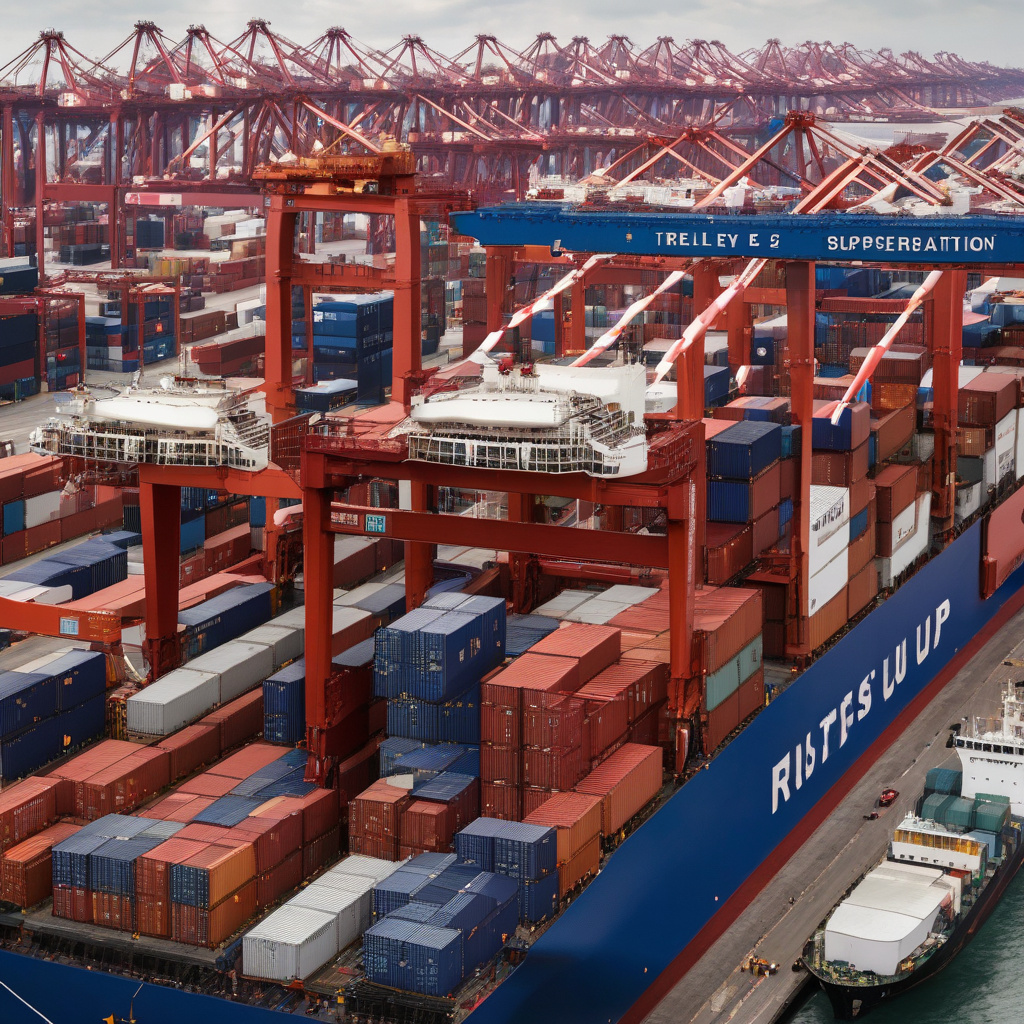EU Suspends Retaliatory 25% Tariffs on US Goods After Trump U-Turn
In a surprising turn of events, the European Union has decided to suspend the implementation of retaliatory 25% tariffs on US goods. This decision comes hot on the heels of a U-turn by former US President Donald Trump, who had previously imposed tariffs on European products. The move has been met with cautious optimism on both sides of the Atlantic, as it signals a potential thaw in the trade tensions that have been simmering for years.
European Commission president Ursula von der Leyen made the announcement, stating, “If negotiations are not satisfactory, our countermeasures will kick in.” This statement underscores the EU’s commitment to resolving the trade dispute through dialogue and diplomacy rather than escalating it further through punitive measures. The decision to hold off on imposing tariffs for 90 days provides a window of opportunity for both parties to come to the table and negotiate a mutually beneficial solution.
The initial imposition of tariffs by the Trump administration had sparked fears of a trade war between the US and the EU, with both sides levying duties on each other’s products in a tit-for-tat escalation. These tariffs had far-reaching implications for businesses on both sides of the Atlantic, leading to increased costs, disrupted supply chains, and uncertainty in the market.
The suspension of the retaliatory tariffs is a positive development for businesses that rely on transatlantic trade, as it provides a reprieve from the financial burden of additional duties. Companies in sectors such as automotive, aerospace, and agriculture stand to benefit from the easing of trade tensions, as they can now focus on recovery and growth rather than navigating the complexities of tariffs and trade barriers.
Moreover, the decision to suspend tariffs demonstrates the EU’s willingness to engage in constructive dialogue with the US administration to address shared concerns and find common ground on trade issues. By prioritizing diplomacy over confrontation, both parties have an opportunity to build trust, foster cooperation, and create a more stable and predictable trade environment for businesses on both sides of the Atlantic.
Looking ahead, the next 90 days will be crucial in determining the trajectory of EU-US trade relations. It is imperative that both parties use this window of opportunity to engage in meaningful negotiations, address key trade issues, and work towards a long-term solution that benefits businesses, consumers, and economies on both sides of the Atlantic.
In conclusion, the suspension of retaliatory tariffs on US goods by the EU marks a significant step towards de-escalating trade tensions and fostering a more constructive relationship between the two economic powerhouses. By choosing dialogue over confrontation, both parties have laid the groundwork for a renewed era of cooperation and partnership in trade. As businesses await further developments, the importance of diplomacy and negotiation in resolving trade disputes cannot be understated.
trade, EU, US, tariffs, negotiations












